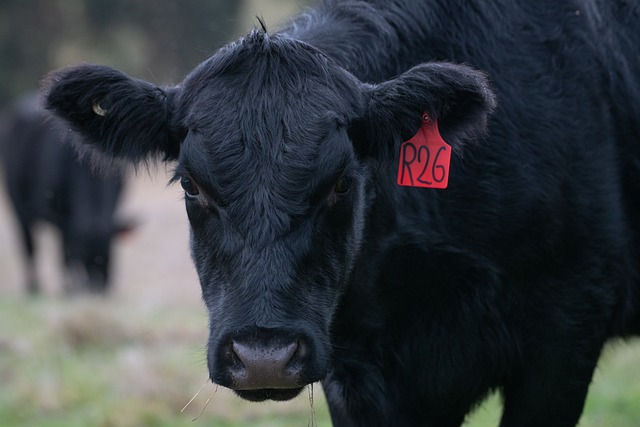August 29, 2022
By Lynda Kiernan-Stone, Global AgInvesting Media
Through an agricultural fund managed by Macquarie Asset Management, Australia’s Clean Energy Finance Corporation (CEFC) has committed A$75 million (US$51 million) to Paraway Pastoral Company to support Paraway in reducing its methane emissions by at least 30 percent by 2030.
This landmark allocation was made to help Paraway meet the principles of the Global Methane Pledge. We are all familiar with the challenges with the reduction of greenhouse gas emissions, which are often couched around CO2 levels. But did you know that methane is a greenhouse gas that is 80 times more powerful than carbon dioxide at trapping heat in the earth’s atmosphere over a 20-year period? And that nearly half, or 48 percent, of Australia’s methane emissions in 2020 were the result of livestock management?
“The agriculture sector is a vital part of the Australian economy and critical to our efforts to feed the nation and the world,” said Ian Learmonth, CEO, CEFC. “As an emissions intensive industry that contributes significantly to Australia’s carbon footprint, we must redouble our efforts to help farmers do their important work sustainably.”
Paraway operates 28 pastoral and cropping farms spanning 4.5 million hectares (11 million acres!) across Australia, on which is run 220,000 head of cattle and 250,000 sheep, along with the activities associated with mixed dryland and irrigated cropping.
Macquarie Asset Management highlights its commitment to sustainability by working closely with its portfolio companies, such as Paraway, to ensure they have the means and capabilities to measure their greenhouse gas emissions, establish reduction goals, and develop achievable plans to meet those targets.
“We are excited to work with Paraway on its net zero pathway, including addressing important methane emission reductions which we hope can be translated to the broader pastoral sector,” said Learmonth. “Paraway’s portfolio of farms is ideally suited to test some of the innovative emission reduction technologies and practice changes for pastoral operations. By adopting the principles of the Methane Pledge, Paraway has shown significant industry leadership in its commitment to curb methane emissions.”
As part of this commitment, Paraway will trial and showcase new technologies and practices geared toward reducing emissions including shifts in herd management, selective breeding and genetics, removing unproductive animals from the herd, feed ration additives, farming practices, vegetation management, and the latest in emissions measurement.
The documented progress will then be shared with other producers to encourage further adoption and emissions reduction.
“Productivity, safety and sustainability all go hand in hand and pursuing new methods of sustainable production in Australian agriculture is a core principle of our approach,” said Harvey Gaynor, CEO, Paraway.
“We’re delighted to be working with the CEFC to trial new and innovative ways to reduce emissions in our pastoral operations for the benefit of the broader sector,” continued Gaynor, “with the long-term aim of producing more of the quality food the world needs, while reducing our environmental impact.”
In Australia, livestock is the third-largest source of greenhouse gas emissions after the energy and transport sectors. However, the red meat industry controls about half of the country’s land mass, with Australia’s livestock sector valued at about $35 billion per year.
As such an important contributor to the country’s economy and as one of the largest beef exporters in the world, addressing methane emissions produced through livestock production presents a vast window of opportunity to advance Australia in its net zero transition.
Not only will Paraway share its experience and results with the broader farming community, but will establish a series of demonstration farms across different regions using varying production systems with diverse emissions challenges.
At these locations, demonstration activities may include addressing re-vegetation without reducing productivity, stubble management for soil health improvement, and protecting and enhancing biodiversity.
This commitment is one of the latest by the CEFC, which is an active investor in Australia’s ag sector, having committed A$720 million to both small and large-scale ag projects. Two projects of note featured by GAI News have included the (CEFC) committing a cornerstone investment of A$50 million (US$37.6 million), alongside another A$50 million (US$37.6 million) investment made by the ag impact investor Kempen SDG Farmland Fund in the Transforming Farming Platform – a sustainable farming initiative to be managed by Gunn Agri launched in October 2021, and its partnership in 2019 with Grok Ventures, to back agri-food tech fund Tenacious Ventures.
~ Lynda Kiernan-Stone is editor with GAI Media, and is managing editor and daily contributor for Global AgInvesting’s AgInvesting Weekly News and Agtech Intel News, as well as HighQuest Group’s Unconventional Ag. She can be reached at lkiernan-stone@
*The content put forth by Global AgInvesting News and its parent company HighQuest Partners is intended to be used and must be used for informational purposes only. All information or other material herein is not to be construed as legal, tax, investment, financial, or other advice. Global AgInvesting and HighQuest Partners are not a fiduciary in any manner, and the reader assumes the sole responsibility of evaluating the merits and risks associated with the use of any information or other content on this site.

Let GAI News inform your engagement in the agriculture sector.
GAI News provides crucial and timely news and insight to help you stay ahead of critical agricultural trends through free delivery of two weekly newsletters, Ag Investing Weekly and AgTech Intel.




